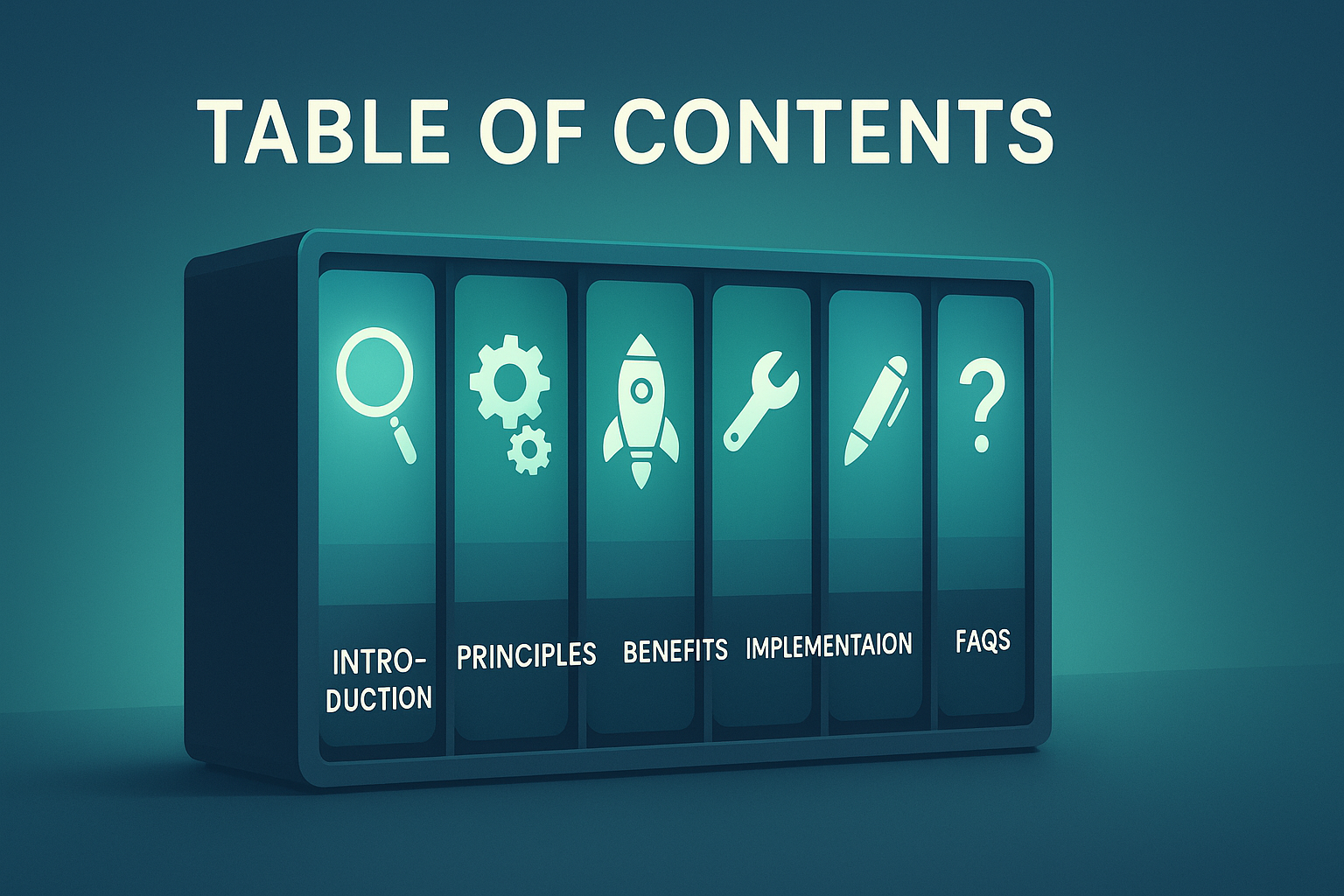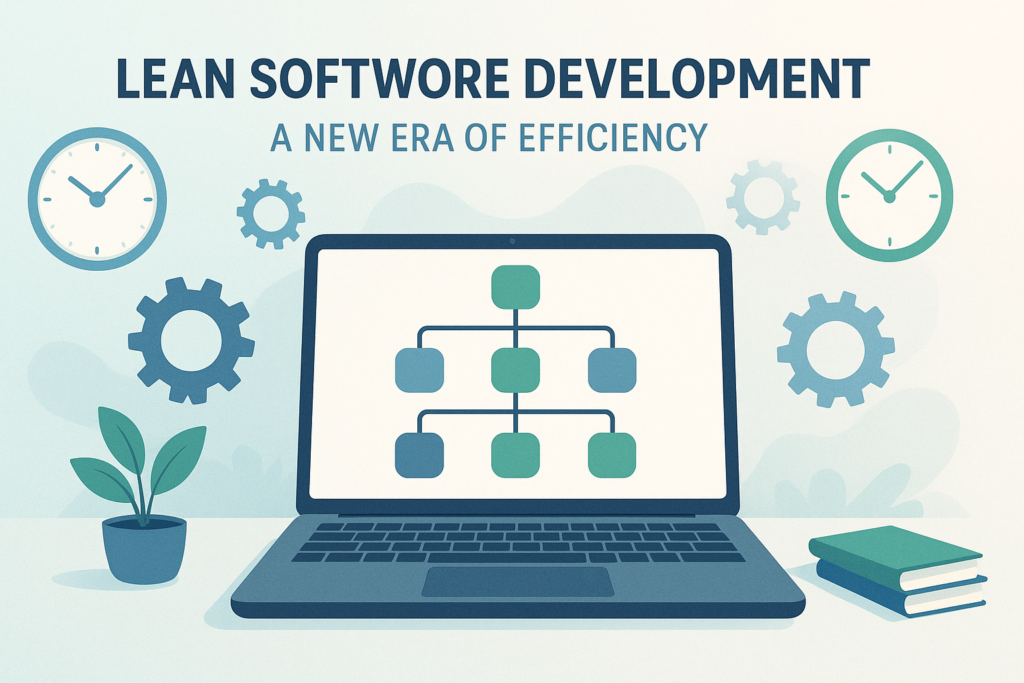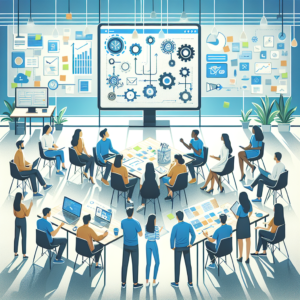Lean Software Development: A New Era of Efficiency
In today’s fast-paced digital world, efficiency isn’t just a buzzword; it’s a necessity. As businesses strive to deliver high-quality software faster and more efficiently, Lean Software Development has emerged as a game-changer. But what exactly is Lean Software Development, and how can it help your team work smarter, not harder? Let’s dive in and explore this transformative approach! 🚀
Table of Contents
1. Introduction to Lean Software Development
2. The Core Principles of Lean Software Development
3. Benefits of Lean Software Development
4. How to Implement Lean Software Development
5. Conclusion
6. FAQs

Introduction to Lean Software Development
Lean Software Development is inspired by the principles of Lean Manufacturing, which originated in the automotive industry. This approach focuses on maximizing value and minimizing waste. In software development, this means delivering the features that users really want while reducing anything that doesn’t add value. It’s all about efficiency, agility, and customer satisfaction.
The Core Principles of Lean Software Development
Lean Software Development is built on several key principles that guide teams towards greater efficiency and effectiveness:
1. Eliminate Waste 🗑️
Identify and remove anything that doesn’t add value to the customer. This could be unnecessary features, overproduction, or even delays in the development process.
2. Amplify Learning 📚
Encourage continuous learning and improvement. Use feedback loops to learn from each iteration and make informed decisions.
3. Decide as Late as Possible ⏳
Keep options open until the last responsible moment, allowing for more flexibility and adaptation to change.
4. Deliver as Fast as Possible 🚴
Speed up delivery by streamlining processes and reducing cycle times, ensuring that software reaches the market quickly.
5. Empower the Team 👩💻👨💻
Encourage team autonomy and responsibility. Empowered teams can make better decisions and adapt more quickly to changes.
6. Build Integrity In 🔨
Ensure that the software is robust and reliable, with quality built into every stage of development.
7. See the Whole 🌐
Adopt a holistic view of the development process to understand the impact of every decision on the entire system.
Benefits of Lean Software Development
Why should your team consider adopting Lean Software Development? Here are some compelling benefits:
🌟 Increased Efficiency: By focusing on value and eliminating waste, teams can work more efficiently, delivering high-quality software faster.
🌟 Enhanced Flexibility: Lean practices allow teams to adapt quickly to changes, ensuring that the software meets evolving customer needs.
🌟 Improved Collaboration: Lean encourages open communication and collaboration, leading to better teamwork and decision-making.
🌟 Higher Customer Satisfaction: By prioritizing value, Lean ensures that the development process aligns closely with customer expectations, leading to greater satisfaction.
How to Implement Lean Software Development
Ready to start your Lean journey? Here are some steps to implement Lean Software Development effectively:
➡️ Assess Your Current Processes: Identify areas of waste and opportunities for improvement in your current workflow.
➡️ Engage Your Team: Involve your team in the transition process. Their insights and buy-in are crucial for successful implementation.
➡️ Start Small: Begin with a pilot project to test Lean principles and refine your approach before scaling up.
➡️ Monitor and Adjust: Continuously monitor progress and be open to making adjustments as needed. Lean is about continuous improvement!
Conclusion
Lean Software Development offers a powerful framework for enhancing efficiency, adaptability, and customer satisfaction in software projects. By embracing Lean principles, teams can transform their development processes and achieve remarkable results. So, why not give it a try and embark on a new era of efficiency? 🎉
FAQs
Q: What is the main goal of Lean Software Development?
A: The main goal is to maximize value for the customer while minimizing waste in the development process.
Q: How does Lean Software Development differ from Agile?
A: While both focus on flexibility and customer value, Lean emphasizes waste reduction and efficiency, drawing from Lean Manufacturing principles.
Q: Can Lean Software Development be applied to all types of projects?
A: Yes, Lean principles can be adapted to various projects, though the specific implementation may vary based on project needs.
Q: How long does it take to see results from Lean Software Development?
A: Results can vary, but teams often see improvements in efficiency and quality within the first few iterations of implementing Lean practices.
Q: Do we need special tools to implement Lean Software Development?
A: While certain tools can aid the process, Lean is more about mindset and principles than specific tools. However, tools that support collaboration and tracking can be beneficial.













